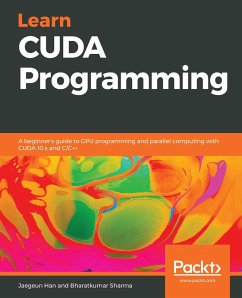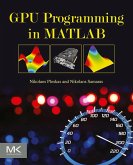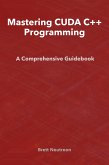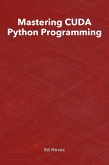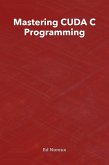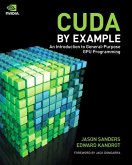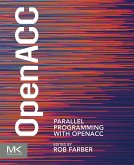Key Features
- Learn parallel programming principles and practices and performance analysis in GPU computing
- Get to grips with distributed multi GPU programming and other approaches to GPU programming
- Understand how GPU acceleration in deep learning models can improve their performance
Book Description
Compute Unified Device Architecture (CUDA) is NVIDIA's GPU computing platform and application programming interface. It's designed to work with programming languages such as C, C++, and Python. With CUDA, you can leverage a GPU's parallel computing power for a range of high-performance computing applications in the fields of science, healthcare, and deep learning.
Learn CUDA Programming will help you learn GPU parallel programming and understand its modern applications. In this book, you'll discover CUDA programming approaches for modern GPU architectures. You'll not only be guided through GPU features, tools, and APIs, you'll also learn how to analyze performance with sample parallel programming algorithms. This book will help you optimize the performance of your apps by giving insights into CUDA programming platforms with various libraries, compiler directives (OpenACC), and other languages. As you progress, you'll learn how additional computing power can be generated using multiple GPUs in a box or in multiple boxes. Finally, you'll explore how CUDA accelerates deep learning algorithms, including convolutional neural networks (CNNs) and recurrent neural networks (RNNs).
By the end of this CUDA book, you'll be equipped with the skills you need to integrate the power of GPU computing in your applications.
What you will learn
- Understand general GPU operations and programming patterns in CUDA
- Uncover the difference between GPU programming and CPU programming
- Analyze GPU application performance and implement optimization strategies
- Explore GPU programming, profiling, and debugging tools
- Grasp parallel programming algorithms and how to implement them
- Scale GPU-accelerated applications with multi-GPU and multi-nodes
- Delve into GPU programming platforms with accelerated libraries, Python, and OpenACC
- Gain insights into deep learning accelerators in CNNs and RNNs using GPUs
Who this book is for
This beginner-level book is for programmers who want to delve into parallel computing, become part of the high-performance computing community and build modern applications. Basic C and C++ programming experience is assumed. For deep learning enthusiasts, this book covers Python InterOps, DL libraries, and practical examples on performance estimation.
Jaegeun Han is currently working as a solutions architect at NVIDIA, Korea. He has around 9 years' experience and he supports consumer internet companies in deep learning. Before NVIDIA, he worked in system software and parallel computing developments, and application development in medical and surgical robotics fields. He obtained a master's degree in CSE from Seoul National University. Bharatkumar Sharma obtained a master's degree in information technology from the Indian Institute of Information Technology, Bangalore. He has around 10 years of development and research experience in the domains of software architecture and distributed and parallel computing. He is currently working with NVIDIA as a senior solutions architect, South Asia.
Dieser Download kann aus rechtlichen Gründen nur mit Rechnungsadresse in A, B, BG, CY, CZ, D, DK, EW, E, FIN, F, GR, HR, H, IRL, I, LT, L, LR, M, NL, PL, P, R, S, SLO, SK ausgeliefert werden.
Hinweis: Dieser Artikel kann nur an eine deutsche Lieferadresse ausgeliefert werden.

